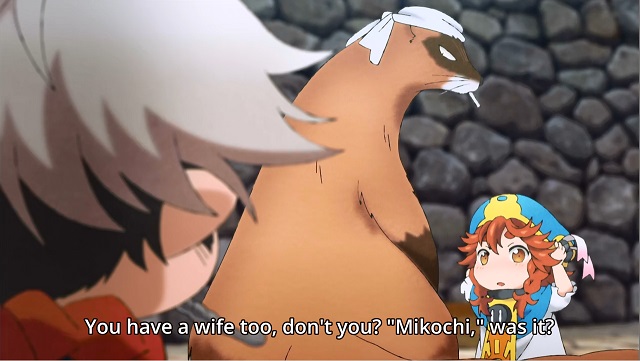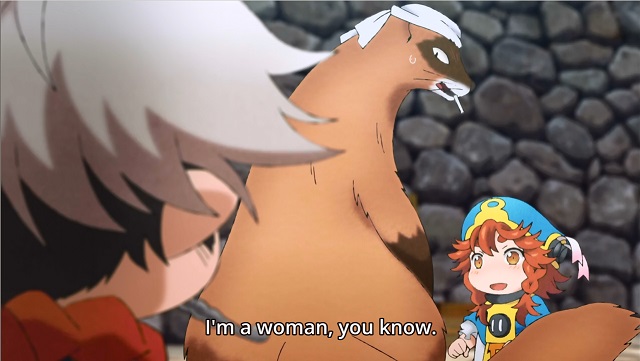Winter 2018: cosy as fuck.
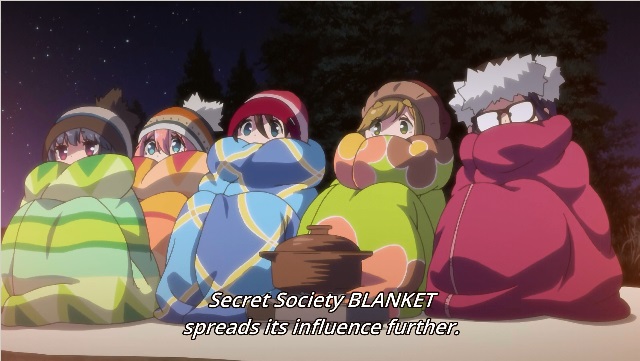
The two best series this season for me were Sora yori mo Tooi Basho, which shouldn’t surprise anybody reading this, and his, Yuru Camp, which was the coziest of all the super cozy shows this season. It was great to have so many great shows that you could wrap around yourself like a comfy blanket during the bleakest months of the year, when Christmas is just a memory and spring is still so far away. These two shows especially were a great antidote against the winter blues, but there were others.
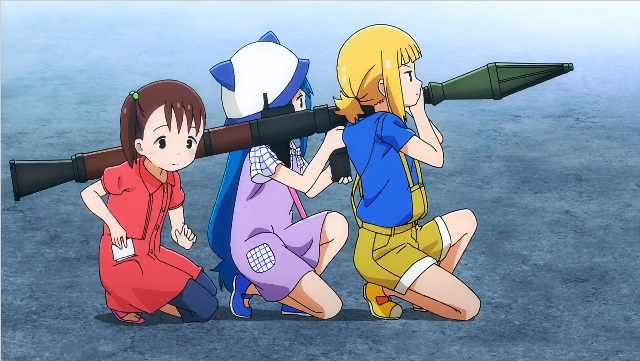
Mitsuboshi Colors was another highlight of the season, a show about three little girls protecting their home town, getting up to mischief and shouting poop a lot. Well, only one of them does to be honest. Coming out on Sundays as it did, this was always a good way to end the weekend. I find myself not laughing at most anime humour, but this series made me laugh out loud multiple times each episode. It’s not just that it has good jokes, it’s that the jokes flow naturally from who those girls are: the crybaby, somewhat anxious leader, the cheerful, energetic poop shouter and the always gaming brainy of the three, who’s actually bad at gaming. They get into those huge adventures based on complete misunderstandings that’s very much like how real kids that age think.
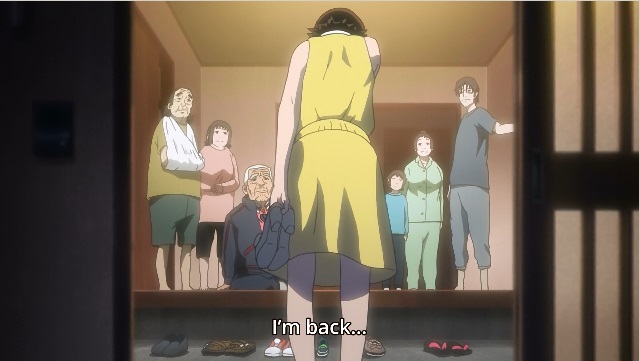
Kokkoku is not cozy at all, but a supernatural horror thriller. It’s the best of all the edgy thriller series —Killing Bites, Hakata Tonkotsu Ramens, Garo— that ran this season, but what makes it special is the protagonist. Yukawa Juri is a graduate looking for a job at the start of the series, fed up with her hopeless family. Said family is an unicum in anime, being a multigeneral, working class family when most anime families are comfortably middle class at worst. Her father is unemployed and has given up looking for a job, her mother works as does her older sister, who is also a single mother, having gotten pregnant with no intention to marry the father. Her brother is a NEET while her living in with them grandfather is retired and the most sensible of the adult men. Which leaves her nephew, who is described as the last hope for the family. So when he’s kidnapped and they have only an hour to get the ransom money, granddad bust out the family secret: the ability to stop time. It’s mostly Juri and her granddad taking the initiative and Juri especially grows through the fight to save her nephew, in the process bonding closer with her family. It’s not perfect, because it has a shitty, fanservice ending theme that has nothing to do with the actual show and the first few episodes are filled with random thugs threatening to rape Juri if they catch her, but its good points outweighted the bad for me. And the opening is crazy good.
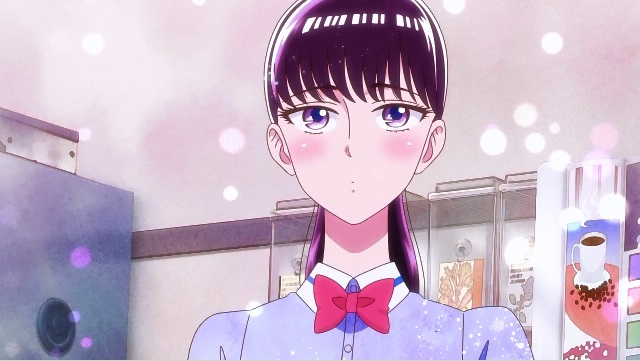
You may be forgiven for having skipped Koi wa Ameagari no You ni as it seemed to be about the one side love of this girl, Tachibana Akira for her fortyfive year old manager at the family restaurant she works for part time. Throughout the series there was this anxiety that this crush would morph into a genuine romance between the two, that it would become creepy propaganda for the idea that it’s perfectly normal for a fortyfive year old man to have a relationship with a teenager, not to mention he’s her boss too. Luckily though it never did; instead this was a story about two broken people finding some level of support in each other and getting their lives back on track. Akira herself had an achilles heel injury that stopped her from running track, getting to grips with her injury and the possibility of getting back to running, while her manager, Masami Kondou, used to be a writer in college and one of his friends is actually a succesful author, so he has to deal with his frustrations and regrets in not being able to do the same. Though the story is nominally about Akira, it’s actually Kondou whosee development is centered the most. A somebody who has been thirtytwo for a while now, I can appreciate this.
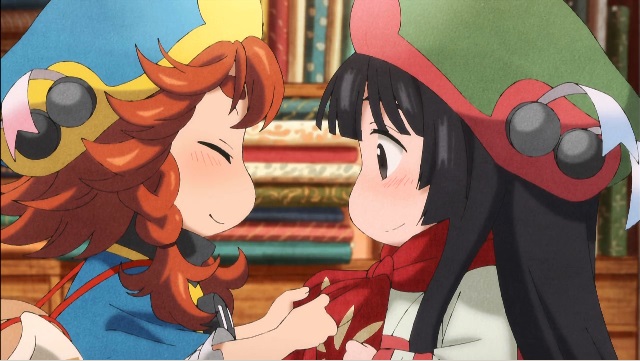
Despite being disappointed in the series vehement denial that its two main characters are a couple, I really liked Hakumei to Mikochi. There was something very comforting in watching the small adventures of these little (nine centimetres) women every Friday afternoon after work had finished for the week. The world they live in is one of grumpy construction foreman weasels and moe beetles wanting to see what life in the big city is like, where there are steam trains but no electric lights, a sort of non-distinct past of just enough technology to be cozy. It’s the perfect series to relax with.
There are many more anime I’ve watched this season and liked, but these are my top five of the season, other than Sora yori mo Tooi Basho.
